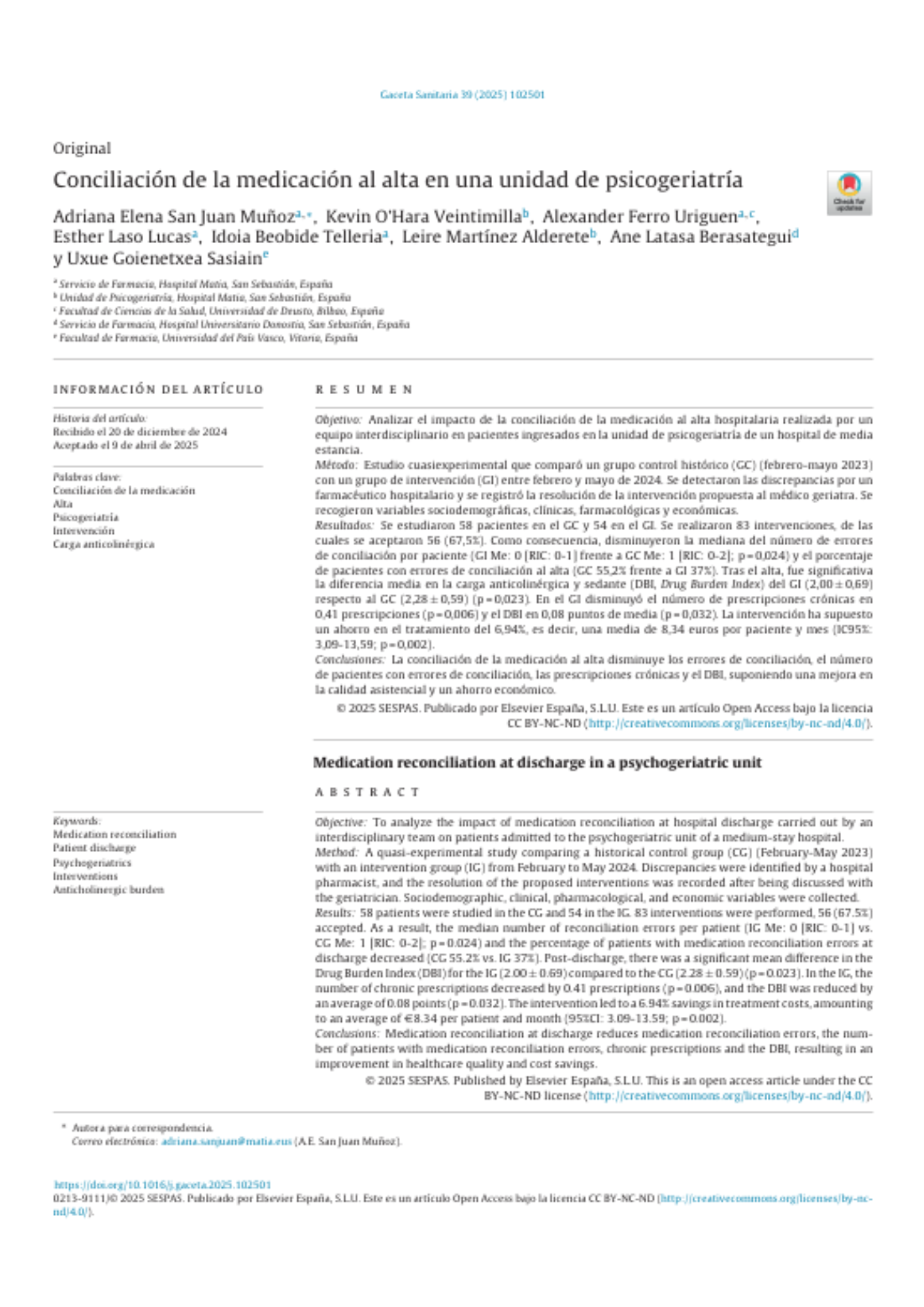Medication reconciliation at discharge from a psychogeriatric unit
Year:
2025
Author: San Juan, A.E., O’Hara, K., Ferro, A., Laso, E., Beobide, I., Martínez, L., Latasa, A., Goienetxea, U.
Imagen:

Revista:
Gaceta Sanitaria 39 (2025)
This article is the result of research carried out by an interdisciplinary team at the hospital, including pharmacists and doctors, who studied how medication review at discharge affects elderly patients admitted to the psychogeriatric unit at Matia Hospital.
Clinical, medication and economic aspects were analysed in two groups of patients at this hospital:
- No intervention group (February-May 2023): their medication was not reviewed upon discharge.
- Intervention group (February-May 2024): a pharmacist reviewed the medication upon discharge, detected discrepancies and proposed an intervention to the doctor.
The findings show that:
- There were fewer medication errors in the group with pharmaceutical review.
- Fewer patients were discharged with errors in their treatment.
- The burden of medications with sedative or anticholinergic effects that can affect memory and alertness in older people was reduced.
- The number of chronically prescribed medications was also reduced.
- In addition, a financial saving of 6.94% was achieved in patient treatment (an average of £7.34 per patient per month).
Reviewing medication at hospital discharge, with collaboration between healthcare professionals, improves patient safety, prevents errors and contributes to more appropriate use of medicines, as well as saving money for the healthcare system.
Professionals
Alex Ferro
Pharmacist at Matia Hospital. Matia Fundazioa
Idoia Beobide
Head of the Pharmacy Department at Matia Hospital
Esther Laso
Specialist pharmacist at Matia Hospital
Adriana San Juan
Specialist pharmacist at Matia Hospital




